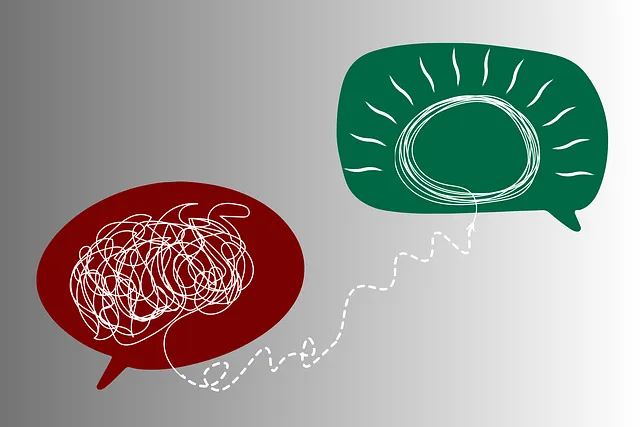Castle Rock Kaiser Permanente's mental health services stand out for their culturally competent approach, addressing unique manifestations of trauma, stress, and anxiety across diverse backgrounds. This inclusive practice, a best practice and ethical imperative, involves personalized care, workshops like Mind Over Matter stress management, and comprehensive training programs. By prioritizing cultural competency, they build trust with diverse communities, enhance patient outcomes, and serve as a model for effective mental health support accessible to all, with a focus on empowering individuals to manage life's stressors.
“In today’s diverse healthcare landscape, cultural competency is no longer an option but a necessity. This comprehensive guide explores the critical role of cultural competency training for healthcare providers, focusing on real-world examples like Castle Rock Kaiser Permanente’s Mental Health Services, renowned for its commitment to diversity and inclusion. We delve into effective training strategies, emphasizing continuous improvement, to ensure quality care reaches all patients, with a specific emphasis on mental health services at this pioneering institution.”
- Understanding Cultural Competency in Healthcare: Why It Matters and Who Needs It
- Castle Rock Kaiser Permanente Mental Health Services: A Focus on Diversity and Inclusion
- Implementing Effective Training Programs: Strategies for Continuous Improvement
Understanding Cultural Competency in Healthcare: Why It Matters and Who Needs It

Cultural competency in healthcare is an essential aspect that goes beyond treating symptoms; it’s about understanding and respecting diverse cultural backgrounds and beliefs among patients. This concept is particularly critical when addressing mental health concerns, as issues like trauma, stress, and anxiety can manifest differently across cultures. For instance, a patient from a different ethnic or cultural background might express their distress in unique ways, requiring healthcare providers to be adept at interpreting these nuances.
At Castle Rock Kaiser Permanente, the mental health services team recognizes that providing culturally competent care is not just a best practice but an ethical imperative. It ensures that all individuals, regardless of their cultural identity, receive personalized and respectful treatment. This approach not only improves patient outcomes but also fosters trust and strengthens relationships between healthcare providers and diverse communities. Given the rising need for mental health services, particularly in addressing complex issues like depression and anxiety, culturally competent care is a game-changer in ensuring effective support for all.
Castle Rock Kaiser Permanente Mental Health Services: A Focus on Diversity and Inclusion

Castle Rock Kaiser Permanente Mental Health Services stands as a beacon of hope and care for individuals from diverse backgrounds seeking support. The organization recognizes that addressing mental health challenges requires an inclusive approach, tailored to meet the unique needs of every patient. To achieve this, they offer a range of services designed to foster diversity and cultural competency within their practices.
One notable aspect is their focus on stress management workshops, guided by the Mind Over Matter principles. These sessions empower patients with valuable tools for coping with life’s stressors, fostering inner strength development. By incorporating such initiatives, Castle Rock Kaiser Permanente ensures that their mental health services are accessible, culturally sensitive, and impactful, catering to a diverse range of individuals in need.
Implementing Effective Training Programs: Strategies for Continuous Improvement

Implementing effective training programs is key to enhancing cultural competency within healthcare settings, especially for organizations like Castle Rock Kaiser Permanente that prioritize mental health services. A well-structured training initiative should go beyond surface-level awareness and focus on practical strategies for improvement. By incorporating interactive workshops, case studies, and role-playing scenarios, healthcare providers can develop essential skills such as coping skills development and conflict resolution techniques. These hands-on approaches allow professionals to practice navigating complex cultural interactions with confidence.
Additionally, integrating mental wellness journaling exercises into the training regimen can empower participants to reflect on their experiences, identify personal biases, and gain deeper insights into diverse patient perspectives. Such exercises provide a safe space for self-exploration and encourage continuous learning. Regular feedback sessions and peer discussions further enrich the training experience by fostering collaborative problem-solving. With consistent effort and commitment to these strategies, healthcare providers at Castle Rock Kaiser Permanente can ensure their cultural competency remains dynamic and responsive to evolving community needs, ultimately improving patient care outcomes.
Cultural competency training is a game-changer in healthcare, as demonstrated by Castle Rock Kaiser Permanente’s successful initiatives. By focusing on diversity and inclusion within their mental health services, they’ve improved patient outcomes and staff satisfaction. This highlights the importance of implementing effective training programs that promote continuous improvement. As the number of diverse patients continues to rise, ensuring cultural competency is essential for providing equitable care. Through strategies outlined in this article, healthcare providers can navigate the path towards a more inclusive and compassionate environment.






